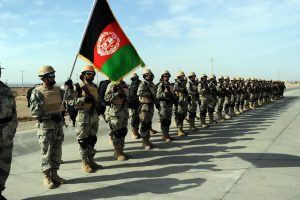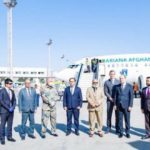There has been a significant drop in the Taliban’s attacks since the group announced a ceasefire with the Afghan forces during the three days of Eid that were celebrated from Sunday, May 24 to Tuesday, May 26, Afghan security officials said.
Security sources within the Afghan government have said that before the Eid ceasefire, the Taliban were initiating almost 100 attacks daily across the nation, but now these attacks have been reduced to six minor attacks daily.
The ceasefire by the Taliban was intended to expedite the process of the prisoner swap between the two sides.
In an unexpected move, the Taliban on Saturday (May 22) announced a three-day ceasefire with the Afghan government on the occasion of Eid-ul-Fitr.
In response, President Ashraf Ghani on Saturday pledged to release 2,000 more Taliban prisoners, and to focus on furthering peace efforts.
Violence had dramatically increased in Afghanistan over the past few months since the US-Taliban peace deal was signed in Doha on February 29.
Taliban call for transparency in the prisoner swap process:
On Monday, the Taliban said that hundreds of prisoners released by the Afghan government weren’t affiliated with the group.
“The Taliban delegation, lead by Mawlawi Zia al-Din, is present, and this issue has become clear for them, because the released prisoners claimed there were people on the list who were criminal prisoners,” said Sayed Akbar Agha, a former Taliban commander.
In response, the Afghan government has said that technical teams from both sides are working to determine the identity of the inmates.
According to the Afghan security institutions, before the Eid, the Afghan force recorded 100 attacks by the Taliban in 22 provinces.
“There are no movements across our zone, we are staying in active-defense position,” said Zabihullah Mohmand, the commander of 207 Zafar Army Corps.
The southern province of Helmand, once a major battlefield between the Afghan forces and the Taliban, is also experiencing a significant calm these days.
“After Eid, thank God, the situation is pretty good, there is no war and violence,” said Attaullah Afghan, the head of the Helmand provincial council.
While the Afghan government and the Taliban try to use the prisoner swap as an opportunity for confidence-building measures and intra-Afghan talks, there are concerns that the war victims are sidelined in the process.
“A neutral body should appoint a delegation from the war victims so that they can share their demands directly with the negotiating sides,” said Zabihullah Farhang, the head of the media department of the AIHRC.
Earlier this week, Abdullah Abdullah, the head of the High Council for National Reconciliation, said he remained hopeful about the current opportunity for peace, which he said has been provided due to the ceasefire.
Abdullah said that he hopes the intra-Afghan talks start within the next few weeks.













